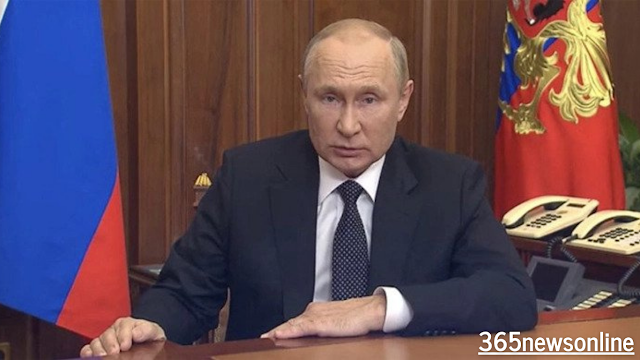Putin orders mobilisation for Ukraine, says nuclear threat is 'not a bluff'
 |
| Image Credit: Google |
In what NATO referred to as a "reckless" act of desperation in light of Russia's impending loss, President Vladimir Putin ordered a mobilisation of Russian forces to fight in Ukraine on Wednesday. He also made a barely disguised threat to use nuclear weapons.
Following the news of the nation's first military mobilisation since World War Two, flights out of Russia swiftly sold out. This was a remarkable change from months before, when Moscow had maintained that their operation was "running according to plan."
In a nation where there are millions of reservists who were once conscripts, Putin's order on "partial mobilisation" did not specify who would be called up.
Out of a pool of 25 million people, 300,000 people, according to Defence Secretary Sergei Shoigu, would be mobilised. Professional troops' contracts would be continuously renewed.
Putin virtually proclaimed the annexation of four Ukrainian provinces in his televised speech by promising that Russia will help organise referendums on annexation in the Ukrainian regions of Luhansk, Donetsk, Zaporizhzhia, and Kherson. The preparations for these ballots this week were publicised a day earlier by Russian-installed officials in the four areas, which the West blasted as a fraud.
Putin claimed that NATO officials have threatened to deploy nuclear weapons against Russia without providing any supporting proof, but added that Russia "also has various instruments of destruction."
"We will unquestionably employ all available means to defend Russia and our people in the event that our nation's territorial integrity is in jeopardy. This isn't a bluff, "said he.
Despite believing that Putin would be unlikely to use nuclear weapons, Ukrainian President Volodymyr Zelenskiy said that the threat demonstrated the need for Ukraine to resist Putin.
"He won't utilise these weapons, in my opinion. He won't be able to deploy these weapons, in my opinion "Zelenskiy remarked in comments that were published in the German daily Bild.
"Putin will be able to declare tomorrow that if Poland is not given to us, we will use nuclear weapons. We cannot accept these concessions "said Zelenskiy.
Putin's threat to deploy nuclear weapons was criticised by NATO Secretary-General Jens Stoltenberg as "dangerous and reckless language" in an interview with Reuters. "That the conflict is not going according to his intentions" was proven by the mobilisation strategy.
According to Stoltenberg, "We will make sure that there is no confusion in Moscow about exactly how we will react" in the event that Russia decides to deploy nuclear weapons. The primary goal is to stop that from happening, which is why we have been so explicit in our talks with Russia about the unheard-of repercussions.
American ambassador to Ukraine Bridget Brink declared that the United States would never acknowledge Russian annexation claims of Ukrainian territory.
She wrote on Twitter that "sham referenda and mobilisation are marks of weakness, of Russian failure."
Following weeks in which Russia's invasion force in northeastern Ukraine was destroyed and thousands of Russian soldiers fled frontline positions, the war saw its biggest turn for the worst since its early stages, Putin made his declaration.
Ukrainian forces claim they are ready to advance further into territory that Moscow had taken over over months of fierce warfare after seizing some of the major supply routes that had serviced Russia's front line in the east.
According to British Defence Secretary Ben Wallace, "no amount of threats and misinformation can obscure the truth that Ukraine is winning this war, the international world is united, and Russia is becoming a global pariah."
Putin's speech was criticised by Zelenskiy adviser Mykhailo Podolyak as a "completely predictable appeal, which appears more like an effort to rationalise their own failure."
Podolyak texted Reuters, "The war is definitely not proceeding according to Russia's blueprint, which prompted Putin to make incredibly unpopular measures to mobilise and severely restrict the rights of people."
According to several military experts from the West, adding hundreds of thousands of new soldiers would take months, would not significantly reduce Russia's losses, and might even exacerbate the situation by diverting resources away from the front lines to train and equip the new recruits.
"Jaw-dropping. Another indication of RU weakness "An ex-commander of American ground forces in Europe, Mark Hertling, tweeted. "Placing 'newbies' on a front line that has been mauled, has low morale, and who don't want to be (there) portends more RU disaster," said one observer.
